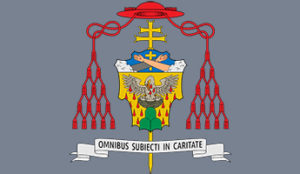A Reason to Celebrate
The portico of the Sacred Convent of Assisi overlooks Perugia and the entire Valley of Spoleto. It is a place so dear to us friars that it feels like home. There is a plaque mounted there, quoting lines from Dante Alighieri’s Paradiso, describing the beauty of the hillside.
In the voice of the Dominican St. Thomas Aquinas, an entire Canto of Paradiso is dedicated to St. Francis of Assisi. (Part of the following Canto has the Franciscan St. Bonaventure praising St. Dominic.)
The commemoration of Dante and his Divine Comedy is more than celebrating one of the most important works of literature. Pope Francis said he hoped it would
make the figure of Alighieri and his work understood and appreciated again, to accompany us on our personal and community journey. In fact, the Comedy can be read as a great itinerary, rather as a true pilgrimage, both personal and interior, as well as communal, ecclesial, social, and historic. It represents the paradigm of every authentic voyage in which humanity is called to leave behind what Dante calls ‘the little patch of earth that makes us here so fierce’ (Par. XXII, 151) in order to reach a new condition, marked by harmony, peace, and happiness.
In 1965, commemorating the birth of Dante, St. Pope Paul VI claimed that Dante is ‘ours,’ meaning he belongs to the Catholic Faith. The Pope also noted that although Dante had a firm faith, in the Comedy he “lashed out severely against more than one Roman Pontiff.”
In a similar way, Franciscans can claim that Dante is ‘ours.’ He loved St. Francis (the only person to whom he dedicated an entire Canto), but he also loved the Franciscan family and did not spare them from harsh reproach for having distanced themselves from the Poverello’s ideals.
Therefore, he is ‘ours’ not in an egoistic sense, but in challenging us to listen to his voice and making it resound again, echoing St. Pope John Paul II in that Dante’s:
art evokes lofty emotions and the greatest convictions, and still proves capable of instilling courage and hope, guiding contemporary man’s difficult existential quest for the Truth which knows no setting.
To read further, please follow this link:
https://www.ofmconv.net/en/i-le-ragioni-per-celebrare-un-centenario/
In the next post, we will explore Dante’s life and character.



